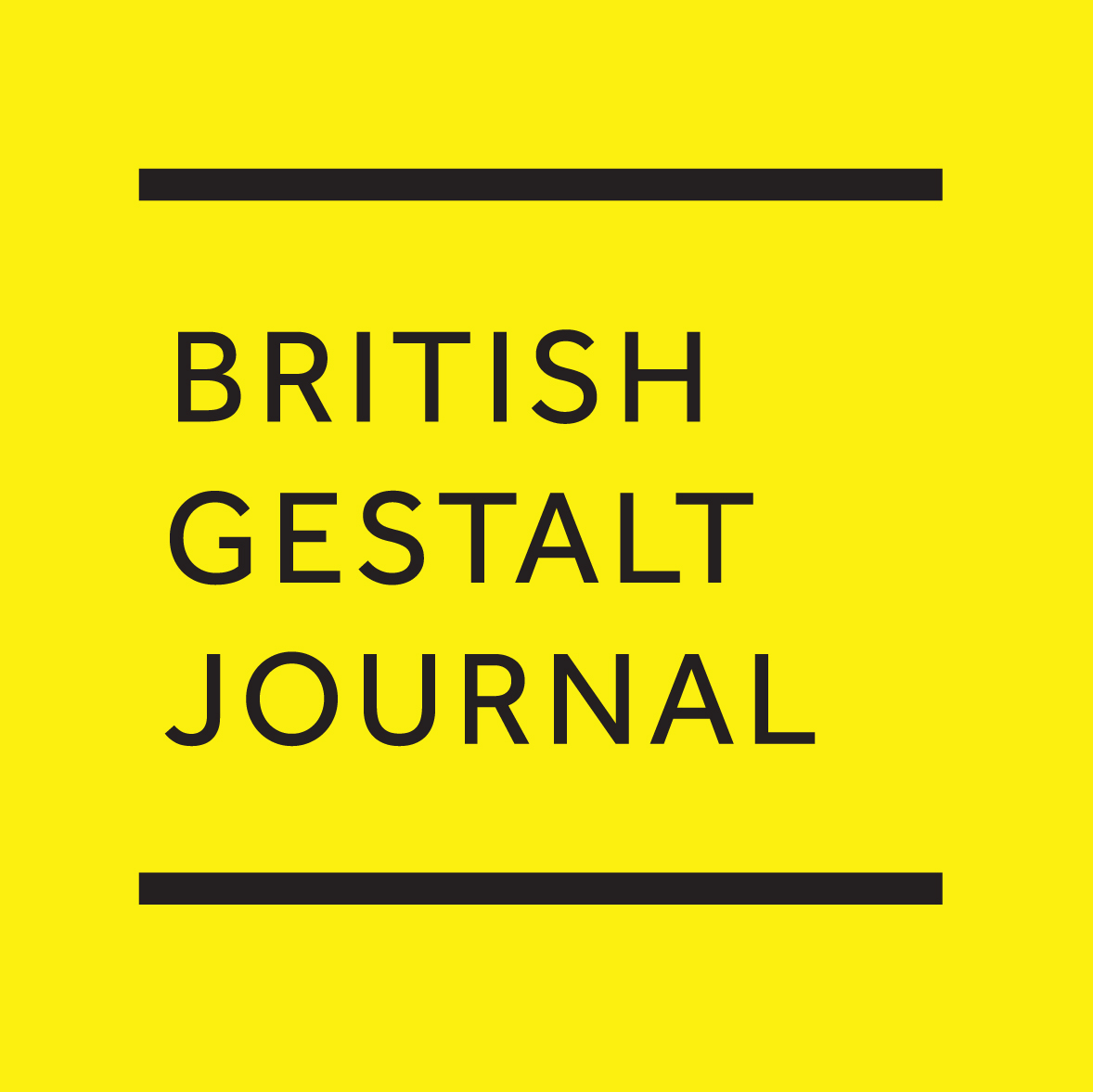Volume 27, 1 (2018)
Volume 27, 1 (2018)
doi.org/10.53667/IXFE8046
Contents
Editorial - Christine Stevens
Obituary
What is the essence of Gestalt? A tribute to Sonia Nevis - Nigel Copsey
Articles
Out of the Paris Conference: a step into exploring practice-based research in Gestalt therapy - Vincent Beja, Gianni Francesetti, Jan Roubal and Mark Reck
Making research matter: how can I become a more effective Gestalt therapist? - Christine Stevens
Gestalt couples therapy - Friedemann Schulz
Hidden figures: a somatic and relational approach to healing OCD
Ingenious intention - Gerrie Hughes and Piergiulio Poli
Letters to the Editor
UKAGP/BGJ joint conference 2017 - Chris O’Malley
A reply to Philippson - Ben Graham
BGJ Seminar Day 2017 - Sharon Beirne
Reviews
Discussing Gestalt with candour and lucidity. A review of Gestalt Therapy by Gordon Wheeler and Lena Axelsson - Emmanuel Hernani
Gestalt coaches as awareness agents. A review of A Gestalt Coaching Primer - the Path Toward Awareness IQ by Dorothy E Siminovitch - Kay Young
Working outdoors. A review of Ecotherapy in Practice: A Buddhist Model by Caroline Brazier - Kathryn Morris-Roberts
Living moments. A review of Contact and Context edited by Ty Francis and Malcolm Parlett
Notices
Out of the Paris Conference: a step into exploring practice-based research in Gestalt therapy - Vincent Beja, Gianni Francesetti, Jan Roubal and Mark Reck
Abstract: In this paper, the four coveners of the Paris Conference (May 2017) tell us why and how a research tradition in Gestalt therapy is starting to grow: the uniqueness and relevance of Gestalt therapy merits joining the psychotherapy research field to receive legitimation and the Gestalt community has already undertaken good research projects and achieved valuable results. The Gestalt community is now mobilised and the success of the Paris Conference seems to be a turning point. The authors continue by discussing how research can fit with Gestalt anthropology and show how this emerging tradition is connected with and part of the wider field of contemporary psychotherapy research. Finally, they focus on the training and development of the reflexive awareness of the therapist, advocating a more research-orientated attitude.
Keywords: Gestalt therapy, psychotherapy research, training, self-awareness
Making research matter: how can I become a more effective Gestalt therapist? - Christine Stevens
Abstract: This paper is developed from a presentation at the Gestalt Research Conference in Paris, May 2017. Focusing on the question, 'How can I become a more effective Gestalt therapist?', I argue that the discipline of reflexive enquiry is an accessible way for all therapists to research their practice. I give examples from my work as supervisor and therapist where I have explored my interest in the haptic use of materials in therapy to inform and support the development of my practice.
Keywords: practice-based research, reflexivity, sand tray, clay, haptic, creative methods
Gestalt couples therapy - Friedemann Schulz
Abstract: Couples therapy is often described as a more active, or even as a more directive form of psychotherapy, and is frequently written about with a focus on technique. This paper argues that Gestalt therapists can work with couples dynamically while remaining collaborative and dialogic in their approach. Four foundational theoretical assumptions are discussed and subsequently connected to four aspects of their application to couples therapy. In particular, the Buberian dialogic method is offered as the heart of Gestalt couples therapy, and various clinical vignettes are presented to illustrate Gestalt work with couples.
Keywords: couples therapy, relational Gestalt therapy, field perspective, field conditions, perspectivalism, dialogic method, experimental attitude, experience-near psychotherapy
Hidden figures: a somatic and relational approach to healing OCD - Stacey Klein
Abstract: This article aims to show Obsessive-Compulsive Disorder is not a disorder but a creative adjustment and a meaningful coping response to an early traumatic environment. Stemming from her long-term experience practising cognitive behavioural therapy, the author describes how this approach is often inflective and contraindicated for traumatised individuals and introduces a longer-term somatic and relational approach based in Gestalt therapy. The author shows that the reinstatement of a client's stalled separation-individuation process is at the heart of healing OCD. The phenomenological unfolding and treatment of Obsessive-Compulsive process in the present moment is illuminated through several case studies, each one demonstrating an aspect of treatment including: the use of Winnicott's 'transitional object' as metaphor to deconstruct fixed figures and expand the contact boundary, the relationship between OCD and preoccupied attachment, and the use of mind-body interventions derived from developmental somatic psychotherapy. The author emphasises that viewing OCD as a process rather than a pathology can help drastically to reduce clients' shame and reorganise the relational field so healing can occur.
Keywords: Obsessive-Compulsive Disorder, creative adjustment, trauma, cognitive behavioural therapy (CBT), relational, preoccupied attachment, separation-individuation, developmental somatic psychotherapy (DSP)
Ingenious intention - Gerrie Hughes and Piergiulio Poli
Abstract: Beginning with Goodman's definition of spontaneity and deliberateness, this article revisits Gestalt theories that reflect the tension between individual and environmental influence. As a way of conceptualising the more individually active aspect of this dialectic, the term intention is defined and explored, and differentiated from the phenomenological concept of intentionality. Subsequently, approaches for incorporating both intention and ingenuity into their own work are offered for practitioners to consider.
Keywords: person/world, spontaneity/deliberateness, intentionality, intention, experiment, ground


